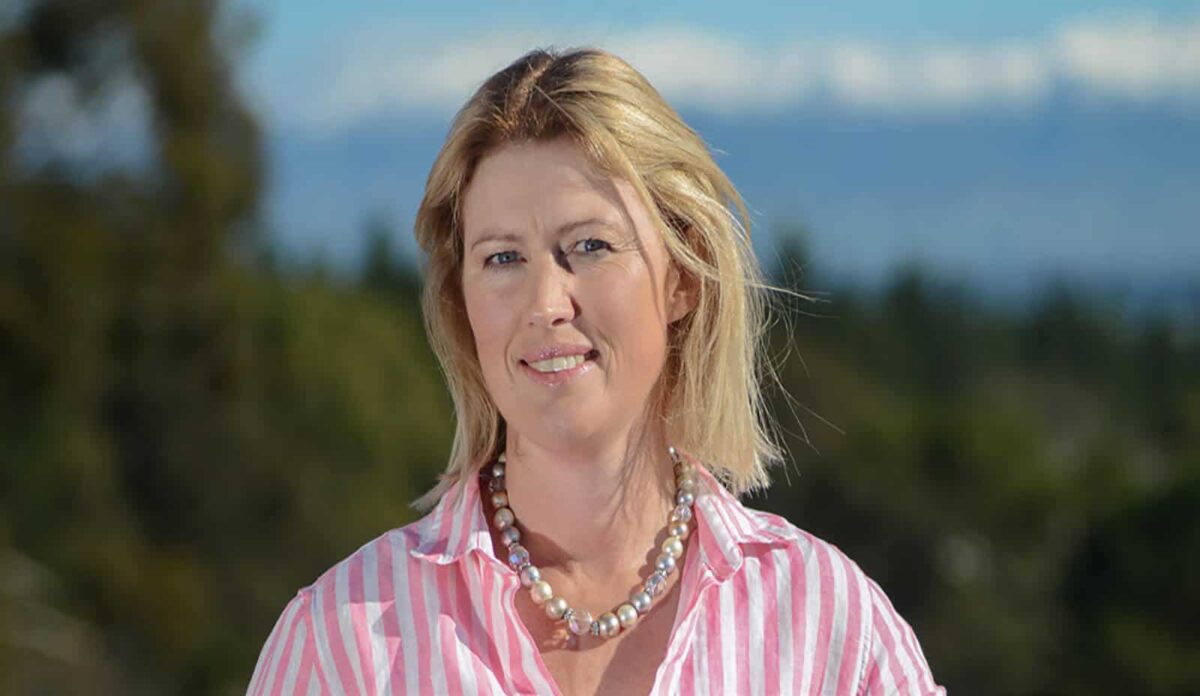Editor’s note: Recently, Ballance Agri-Nutrients and other sponsors put their support behind the Ballance Farm Environment Awards to showcase selected farmers in our region who are leaders in marrying sound environmental practices to commercially successful farming operations, demonstrating that what’s good for the environment is good for business. This keynote at the 2018 Hawke’s Bay Regional Awards by Ballance director and CHB farmer, Sarah von Dadelszen, struck BayBuzz as right on the money!
Each of you as farmers has to play a leadership role in making sure that agriculture can continue to deliver for New Zealand … and for our growers and farmers whose livelihoods depend on it.
Let me start by saying that we are not at a crisis point. There’s a pretty healthy picture right across the primary sector in New Zealand, both in terms of export returns and global demand for what we produce. Here in Hawke’s Bay it has been an exceptional year for many.
And consumers are getting more and more interested in provenance – where their food comes from and how it’s produced. That’s got to be good for us, as we see niches opening up, where you have the right farming systems, animal welfare practices and environmental approaches.
Put simply, having a profitable and truly sustainable farming operation is increasingly about having a VIP entry ticket, or a ‘passport to success’.
If we don’t pass muster, don’t have that passport, then we will be shut out – our market opportunities will narrow from the premium end, and be constrained to commodities. And that is not a tenable place for NZ agriculture to be.
Constraints and ‘farming within limits’ are nothing new. Our farmers are hugely resilient. If you look back at the relatively short history of New Zealand farming: 150 years ago, land was a constraint, and then you needed livestock and crops to farm it.
These were the ‘passports to success’ of the day. So New Zealand had an open-door policy to animal and plant imports between the 1840s and the early 1860s.
Then our dairy and sheep and beef farmers had the logistical challenge of getting perishable products to consumers on the other side of the world, and also accessing the necessary farm inputs – so they formed dairy and meat cooperatives.
Today a great example of that ‘passport to success’ would be the new cultivars like Zespri’s SunGold, which is set to drive the GDP contribution of kiwifruit from $2.6 billion in 2015/16 to more than $6 billion by 2030, with an additional 29,000 jobs.
The raspberry fruit being developed by Zespri and Plant & Food may be the next innovation that keeps our kiwifruit industry ahead of the game.
And our red meat sector is also exploring how it will respond to the potential disruption from plant-based proteins and lab-grown meat.
What’s different today, from 150 years ago, is that the government used to solve these problems for us – effectively hand us a ‘passport’, right up until mid-1980s.
Now success is in our own hands, driven by market forces – what our consumers want. That could be cheaper sources of food, or it could be ‘better’ food.
And if we want it to be ‘better’, where profit resides, we need to have the right credentials and be able to prove it to our customers. So ‘farming within limits’ could actually work in our favour as a differentiator, with a sustainability story around how our food is produced.
That’s the essence of being ‘future ready’ and to my mind it’s much more about opportunity than risk. Yes, there is a tidal wave of regulation coming our way. And yes, there will be a continued focus from the public and government on nutrient levels and water quality standards, and enforcement.
That means farmers are juggling a couple of extra balls, and a third – big one – if you throw into the air, greenhouse gases and climate change.
At the centre of this for farmers is fairness and objectivity, which can be a real challenge when there is so much at stake, and emotion. So last week a group of us engaged with Ministry for the Environment on farm. A couple of gems came from that. One was a comment from MfE saying: “You guys on farm want the same outcome as we do.”
We need to collectively have these conversations with policy makers and be open with our communities. It’s vital to our licence to operate.
In New Zealand we also have some tension between farm types and generations – water allocation to dairy conversions versus long-standing sheep and beef operations. There is intense public focus on dairying and nitrogen, tomorrow it might be hill-country sediment. What about the impact of intensive vegetable cropping?
This is where the Ballance Farm Environment Awards are an incredibly important lens, providing objectivity and identifying exemplars for others to follow.
The sponsors are here and involved in these awards because we want to support New Zealand farmers having that ‘passport for success’ – today and into the future.
Thank you for putting your farms under the microscope. That takes courage.
The Ballance Farm Environment Awards celebrate the passion that farmers have for what they do. These awards also bring to the fore another cohort of farming leaders who can point the New Zealand agriculture sector toward a sustainable competitive advantage – and success.
Sarah von Dadelszen is CHB farmer and Ballance director.

